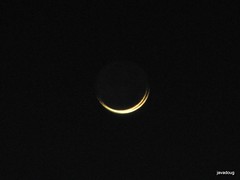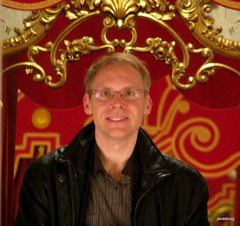As I arrived to Heinz Hall before the finale of the Tchaikovsky festival a while before the concert, I decided to stand in the lobby and observer for a while. Around was the usual hustle and bustle of the various sundry people coming into the main

entrance area out of the brisk cold streets. Many of those arriving were smiling, some were laughing, others looking down at their tickets as they walked slowly and carefully forward momentarily without observing their way. Girls in pink, boys in blue, ladies in mink coats, men in sweaters, leather coats or coat jackets, wandered out of the entry way to the various other entrance halls with obvious looks of anticipation. Occasional groups of students from local universities or colleges would come ambling awkwardly forward, pausing and moving as a group, discussing their musical journey, or some doing social media like texting on their hand held devices, yet clinging to the others. Perhaps I was the only one observing, and my endeavor was more than an idle look into the entry of the patrons, but a way to pass a bit of time before the performance, and my food for thought for the construction of these notes.
What do they anticipate, what will they hear? After all, this is the finale of the Tchaikovsky festival, with two glorious examples of his compositional genius, Symphony No. 5 and the Violin Concerto. I even overheard at least two conversations in Russian language. Pittsburgh has a large international presence, and with this program it seems only natural. A group of 3 people on the second level lobby overlooking that grand hall were also speaking Russian, I almost wish I understood what they were saying.
Tonight Manfred Honeck returned to conduct the orchestra. I found the conducting methods of Gianandrea Noseda, from last weeks concert, and Honeck, for this evenings performance to be widely varied, yet both have a commanding aspect in their own distinct style. I like them both - it's difficult to compare without somehow seeming critical of one versus the other, yet I'll try. First the layout of the orchestra was different. Last week, with Maestro Noseda, the Bass were on the right, and the Viola and Cello were slightly rotated. With Maestro Honeck, the Bass were arrayed on the left. I find the sounds from either configuration to be pleasing, so in that respect I'm not the critic that can describe the merits of either. Perhaps someone from the PSO would like to comment. However, I do like the fact that the changes give me the opportunity to see different musicians in different positions.
With respect to their motions and technique while conducting, I'd say that Maestro Noseda is much more animated than Maestro Honeck, perhaps using much more energy. That's not to say that Honeck isn't also out their with sweeping motions of his arms and baton along the same lines, it's just that when our Music Director does it it somehow seems almost effortless, yet to the same overall effect on the orchestration. Manfred Honeck often stands completely erect, with a elegant sophistication of his posture, yet still exudes the kind of direction and emotion directed toward the players as much any other conductor. In this respect I admire his ability to straddle a fine edge of control, where in one respect he's composed yet confidently and effectively leads and synchronizes all the players.
Serge Zimmerman played the violin solo of the Tchaikovsky Concerto, accompanied by the Pittsburgh Symphony Orchestra. This performance seemed to be at a somewhat slower tempo that I've heard this selection before, which I like. The lilting tone of the violin seemed perfect for this concerto. Zimmerman did such a fine jobs in the solo parts. I spoke to an acquaintance who I see often here at Heinz Hall -- His impression was that Zimmerman and the Concerto were really good. It's always interesting for me to hear what others think of the performance. Not everyone is always in agreement, but this time it seemed that everything went just right for the Violin Concerto. The first movement starts out with beautiful melodies, when mixed with the softness of the orchestra, and the flute, sound sublime. About two thirds of the way it there is a solo part that seems technically challenging, followed by the symphony with a grand Russian theme. My favorite part is the third movement which played fabulously with the recurring melody, one I like to whistle afterwards.
The Symphony No 5 was played so expertly by the PSO, I simply can't do it justice in just a few words. All I can say is that the beautiful amalgamation of Conductor Honeck and the Pittsburgh Symphony gave one of their best performances.
One final note. If you haven't had a chance to read through the program notes for these Tchaikovsky festival performances at Heinz Hall and elsewhere, and you can still get your hands on one, it's definitely worth it for the wealth of information about Tchaikovsky, his compositions and the performances.











